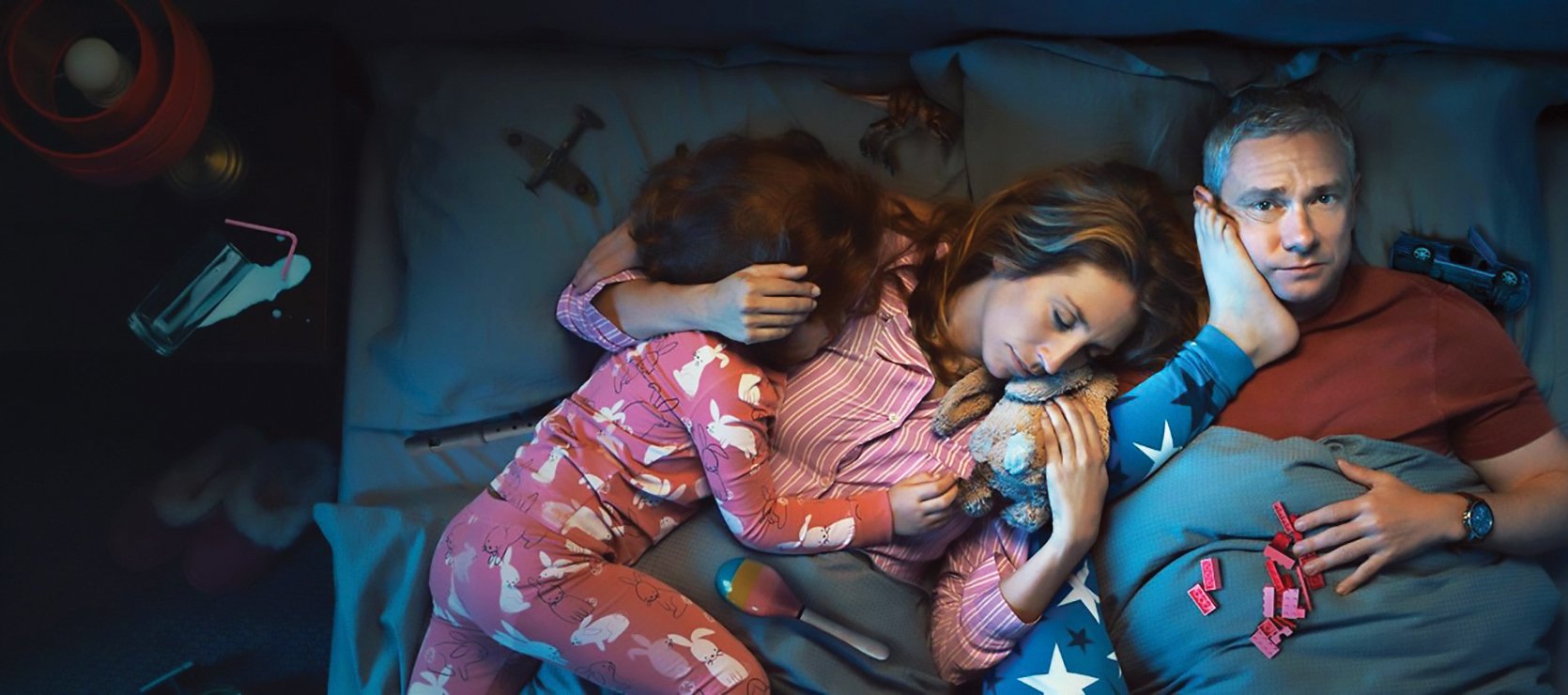Breeders subversively mines the paradoxes of parenting
We’ve been watching the FX show Breeders the last few weeks and it has quietly become one of my favorite new television shows of the last few years. My partner and I blew through the first season and are watching new episodes of season two, which is currently airing weekly on both FX and Hulu. Perhaps we’re drawn to it being new parents ourselves, but it seems in every episode we marvel at how accurately Breeders captures the feeling of being a parent more than any other piece of fiction I’ve encountered. Martin Freeman1, who stars in the show as Paul and is a co-creator, credits the initial idea to his own experience being a father and set out to create an honest portrayal of parenting. At first glance, the series is a prestige-looking, beautifully show sit-com about parenting but in its two seasons, has subversively dug into the paradoxical truths of what it means to have children and be a parent in contemporary society.
In the first episode, this paradox is laid out: after yelling at his young children Paul, sitting on the steps in their London townhouse admits, “I’d die to protect these children but most days I also feel like I could kill them.” It’s a feeling, however exaggerated, I imagine most parents can relate to and gets to the deeper truths of the complicated feelings around the changes you experience in becoming a parent. Before your child, you’ll hear about the joy they will bring, but most gloss over (if mentioning at all) the frustration and pain a new child can also bring as they disrupt the life you were familiar with before. In Breeders, this is explored again and again as we see Paul and Ally (played brilliantly by Daisy Haggard) navigate balancing work, life, and children; figuring out how to be there for them when you also need to take care of themselves.
It’s rare to see an honesty like this in a thirty minute sitcom, feeling more at home in a confessional style standup set. Louis CK2 used to have a bit about how boring it was to play Barbie’s with his own young daughters that I’ve thought about a lot since having a child of my own 3. But where Louis used to be praised for his honesty in these situations, his joke ends in a type of self-loathing, Breeders uses this material to give space for Paul and Ally to figure out how to become better parents themselves. Despite their frustrations, they’re always working on getting better. A better stand-up comparison would be Mike Birbiglia’s The New One, a 2019 one-man show on Netflix where he wrestles with becoming a father even though he never wanted children. For Birbiglia, The New One literally means the new baby, but it’s also the new life he now has. The baby changed everything: his relationship to himself, his things, his partner, his work. Through the hour and half special, Birbiglia navigates this new terrain, excavating his own complicated feelings, resulting in a profound experience with his young child.
In the final episode of Breeders, another paradox is raised: “Having a baby is the best thing,” Paul says, “but at the same time makes you vulnerable to the worst thing.” The worst thing, of course, is the potential for something to happen to your child. This comes after a scare for one of their children in a deeply heartfelt episode and captures the vulnerability inherent in parenting. As the writer Elizabeth Stone said, “Making the decision to have a child…is to decide forever to have your heart go walking around outside your body.” I remember the feeling of hearing my daughter’s heartbeat for the first time: the joy I immediately felt, quickly followed by relief that she was safe and healthy. When we got back home, I realized that relief was temporary, danger is always around the corner. Who knows what we’d hear at the next appointment. That feeling of wanting to protect, yet not always being able to, will never leave me.
The show is subversive in other small ways too, like how Ally appears to be the primary breadwinner (we see her at work often and only rarely see Paul working) while Paul seems to do the cooking and house work. The older boy is the more sensitive of the children while the younger daughter is more confident and outgoing. This subversion of gender stereotypes, while never actually mention, add a depth and nuance to the show I’ve come to really appreciate.
Stories about parenting tend to fall to the extremes, as pure, unadulterated joy or failing and unstable. The truth, though, the actual lived experience for most parents, is much more complex than that. Breeders does a good a job of capturing this complexity of any storytelling on the subject I’ve seen.
-
Will I watch anything Martin Freeman is in? Yes, yes I will. Between The Office, Lord of the Rings, Fargo, and Sherlock, he might quietly be one of our best actors. ↩
-
fwiw, I can’t watch Louis anymore and all the disclaimers about quoting him belong here. ↩
-
To be clear, my child is far from boring but reading the same book to her over and over and over every night does get a bit boring! ↩
